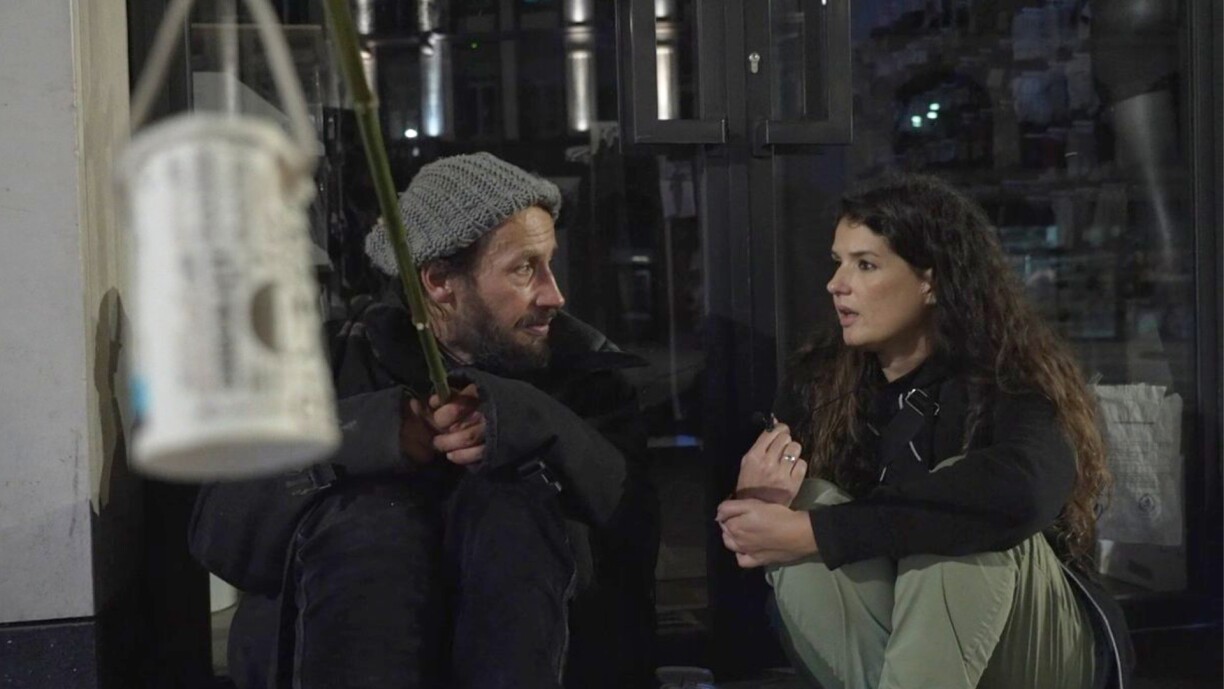
Who are the people sleeping outdoors? In an effort to better understand their lives, colleagues from RTL Télé spent a night with Luxembourg City’s homeless community.
Official estimates suggest that around 200 people are currently homeless in the capital. On 15 November, Luxembourg’s “Wanteraktioun” (“Winter Action”) will once again begin, providing free shelter for homeless individuals throughout the colder months. This initiative will run until 15 April, offering people without permanent housing a safe place to sleep each night.
In 2023, the Winter Action programme had to expand its capacity from 250 to 300 beds in response to the increasing number of people sleeping in the streets in Luxembourg–a concerning trend in a country that, along with its EU counterparts, aims to eliminate homelessness by 2030.
Despite this commitment, the reality suggests that homelessness is not decreasing. On the contrary, it appears to be rising. To shed light on who is affected by this issue and what it means to be homeless in Luxembourg, RTL Télé spoke directly with those experiencing it.
Raza, 63, has been homeless for two months. Our colleagues met him near the Rotondes in Luxembourg City. Originally living in Germany, Raza noted that Luxembourg is often portrayed abroad as a place of abundant job opportunities, high wages, and free public transport.
He shared that he previously worked for Amazon, but his hours were irregular, and the pay was low. Hoping for better prospects, he moved to Luxembourg, expecting more stable employment. “We don’t come here to get money from somebody. We want to work, but we don’t have work,” he said. To make matters worse, people like him lose what little money they have “because this country is very expensive.”
On the night of the interview, Raza had received some food from a local church. When asked about his plans for sleeping arrangements, he explained that he would likely go to Findel Airport, though rest there is difficult. “I have to sit in one of the chairs meant for passengers,” he noted, adding that blending in with travellers helps him avoid notice as a homeless person.
Our colleagues also spoke with Alex, who has been homeless for five years. He explained that he worked for a temporary employment agency, cycling through short-term jobs that often lasted only a week or two. “I pay tax and sleep rough; that’s no good,” he said, frustrated. Although he does not use drugs, he acknowledged that life on the street is stressful, leading him to drink alcohol occasionally. “If you sleep rough, you become aggressive because you’ve got no job, no home,” he added. Alex pointed out that while food is available at lunchtime, there are no evening options for those on the streets.
For nearly six months, Alex has been sleeping near the train station in Hamm, where he shares his space with others, including Romanians who work in construction but also lack stable housing. The toll of homelessness has impacted his health–he now suffers from asthma, bronchitis, and infections. “Tossing and turning left and right on the concrete, it’s normal,” he said, describing his nights on the streets.
Near the central railway station, our colleagues encountered Ludovic, who has been homeless for ten years. He was begging with a paper cup attached to a fishing rod. Ludovic openly acknowledged the toll his lifestyle has taken on him: “I am destroyed. My health is a disaster, psychologically it’s a disaster. But what do you want to do? There’s nothing to be done,” he said.
When asked if he planned to stay at his spot much longer, Ludovic explained that he cannot go to sleep early due to the risks of being around large crowds. He recalled a traumatic incident when he was attacked. Someone poured diesel over him and set him on fire, leaving him with serious injuries to one of his hands.
Our colleagues also asked for Ludovic’s thoughts on the European Union’s goal to end homelessness by 2030, a commitment Luxembourg has also made. He dismissed it as unrealistic: “They prohibit you from begging, from breathing–it’s an easy way to pretend we don’t exist. But we are here. We can’t be erased. How are you going to do that? What kind of idea is that? It’s total rubbish.”
Ludovic argued that not everyone starts life with the same opportunities, pointing to the privileges some people have over others. He believes that, rather than decreasing, homelessness will likely continue to rise in the future.